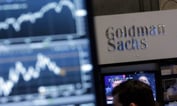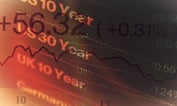The SEC has proposed new a new rule that would make it easier for leveraged and inverse ETFs to come to market. If the rule is approved, those ETFs would no longer be excluded from coverage of the agency’s ETF modernization rule, which allows funds to come to market without first obtaining an exemptive order.
The proposed rule applies to derivatives used by mutual funds, closed end funds and business development companies as well as leveraged and inverse ETFs and sets several conditions for their use. It replaces a previous rule from 2015 that was never implemented.
SEC Chairman Jay Clayton, in a statement, said the proposed derivatives rule, which is subject to 60 days of public comment after publication in the Federal Register, “would benefit investors, funds and our markets, including by providing for more-effective risk management across funds and enhanced investor protections” by “standardizing the framework for funds’ derivatives risk management.”
In the current regulatory environment, “different funds may treat the same kind of derivative differently,” based on “their own view of SEC staff guidance and observation of industry practices,” according to the SEC.
There is currently no commission-wide rule restricting funds’ use of derivatives but rather a patchwork of commission interpretations and staff guidance on their use. The new SEC proposal provides a more comprehensive approach towards the use of derivatives by multiple types of investment funds.
It would limit leverage risk to 150% of the fund’s value of risk (VaR) but funds using derivatives for hedging currency risk only or limit derivatives exposure to 10% of net assets would not be subject to the VaR-based leverage risk limit.
Leveraged or inverse ETFs would be exempt from the 150% VaR limit provided they targeted a 300% return or less of the underlying index, or its inverse and disclosed they were not subject to the VaR limit. In addition, the BDs and investment advisers selling those ETFs would need to determine if there was “a reasonable basis to believe” that their clients were “capable of evaluating the risks” associated with the funds.









 November 26, 2019 at 04:40 PM
November 26, 2019 at 04:40 PM










